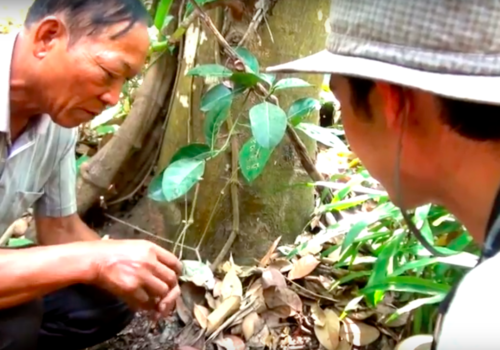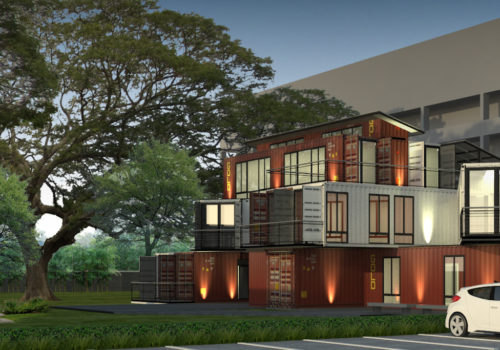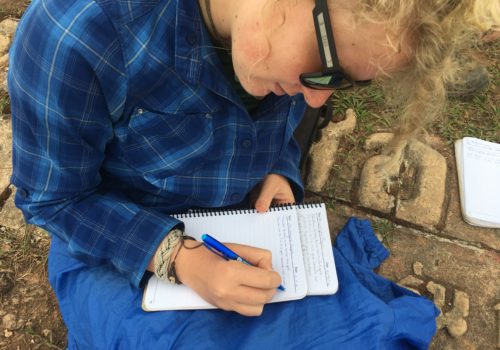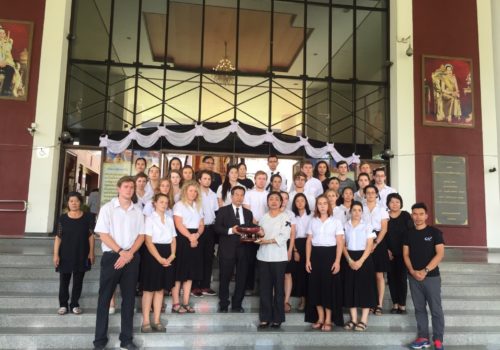If you follow the news, you will have heard that the on-going protests in Bangkok have been broken up, but not without extensive loss of life and damage to the city — and damage to the country as a whole. Many of the grievances expressed during the protests point out deep divisions in this highly unequal society.
Right now, the protests have ended, and most things have calmed down outside of Bangkok. In Bangkok they are still dealing with arson, bombs left by the protesters, and protesters firing on residents, soldiers, and others. (The protests were not all as peaceful as you would think by listening to CNN — the protesters had automatic weapons, grenades, RPGs, etc., beyond the petrol bombs and arson. But they used them at night, and journalists had a difficult time getting good photos. And like with a lot of media, if there’s no photo, it doesn’t exist.)
On Wednesday, the day the government overran the protest site, there were scattered protests throughout the country, including Chiang Mai. Small groups burned tires on one of the bridges, burned two fire trucks, and started a fire at the nearby governor’s residence. Two of our instructors, Pi Ben and Pi Pui, went out to gather some first hand information, see what was going on, talk with some of the people there, and to take a few photos.

Looking south, with tires burning near Narawat Bridge. Not a lot of people around, and the fires didn't last long. Just down the road is where they burned two fire trucks.
The next day, Thursday, that was all cleaned up, and the small protest stages near the railroad station and in the center of the old city were being dismantled. By Thursday afternoon, in Chiang Mai there was little evidence of the fires and unrest at all.

The same intersection on Friday. Pretty much back to normal.
What is next? I’ve included several articles and one video report below that start to answer the questions about how a country known for being sanuk and sabai (fun and relaxed) could have such violent social unrest.
There are real and deep division in Thailand between the haves and have-nots. One of the things that is so powerful about study abroad with ISDSI is seeing first hand how marginalized communities are building a sustainable future, even in the face of such great inequality. Thailand has done very well, and reduced absolute poverty greatly over the last few decades. But not everyone has benefited equally. The social structures and power relationships of hierarchy and patronage are starting to fray, as people want a voice and a real say in their future, and don’t want to just do what they are told, or carry out their assigned role, anymore.
Real participation is powerful, but working out the limits to that, what is appropriate, how it works, how to express grievances, etc. is still not yet settled. And like many places, the powerful don’t want to listen to the powerless.
As for what is next, we will continue to monitor the situation, and keep aware through our networks of NGOs and activists and others in the communities where we work. We have contingency plans for each course, and are willing to change course locations or curriculum if we need to. We’re certainly going to spend a lot of time in our seminars next semester examining how these most recent events impact the society and communities where our students are learning.
As for Thailand, things are never really going to be the same. An on-going insurgency isn’t likely, but social upheaval will continue for a long time. The divisions are out in the open, and our hope is that those rifts can be bridged and healing can happen. Part of the attraction of study abroad in a country like Thailand is that it is such a dynamic place. Sometimes it is chaotic.
———————————
Here are some sources for further analysis and news:
Protest leaders surrender as soldiers storm barricades (BBC video, including armed protesters)
Wounds will take a long time to heal (Bangkok Post editorial)
Sacrifices in Bangkok (Analysis in the Wall Street Journal by Pasuk and Baker, authors, historians and political analysts.)
Thailand’s Farmers Have Stood Up (Wall Street Journal by Andrew Walker, from Australia National University)
Bangkok: how did it come to this? (Andrew Walker, Nicholas Farrelly from ANU)
Thai PM committed to reconciliation but no poll offer (Reuters)
Uneasy peace in Thailand, uncertainties lie ahead (Reuters)
Breaking News! (An excellent analysis of the flaws in CNN’s coverage)



